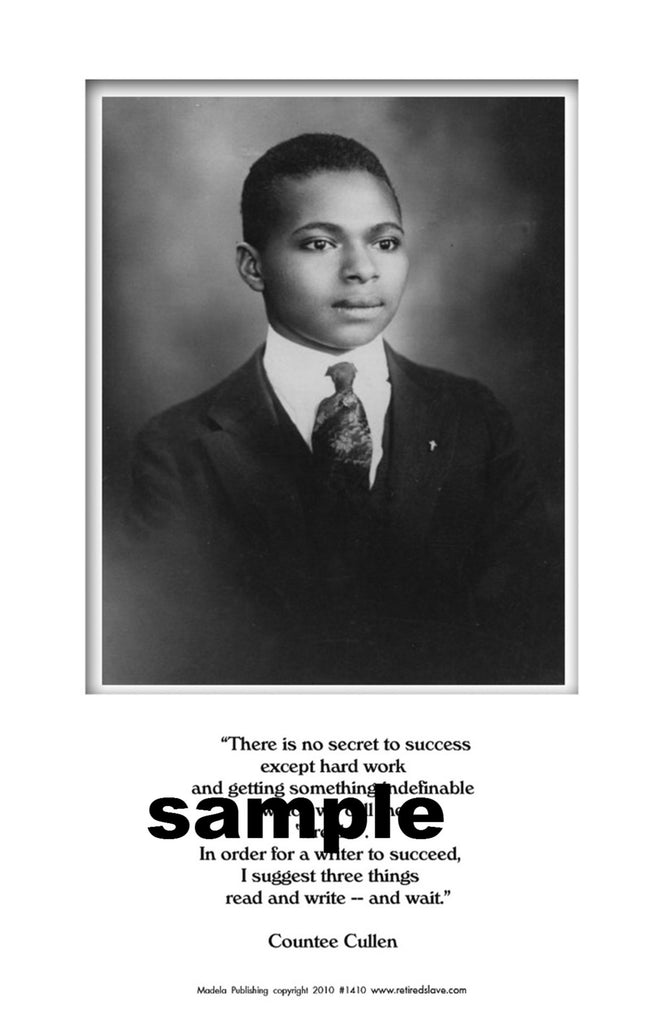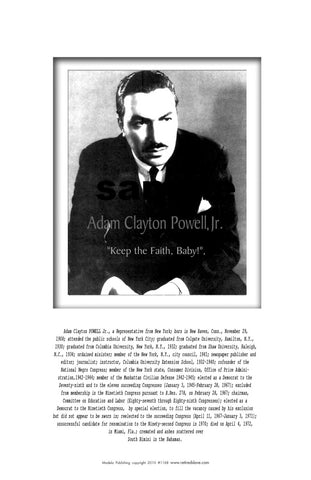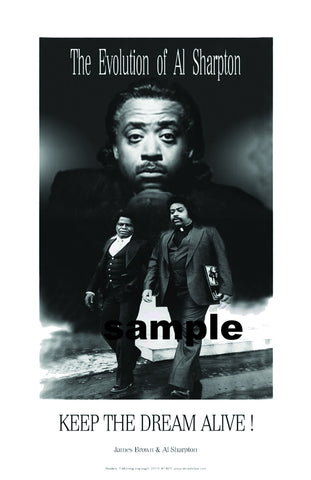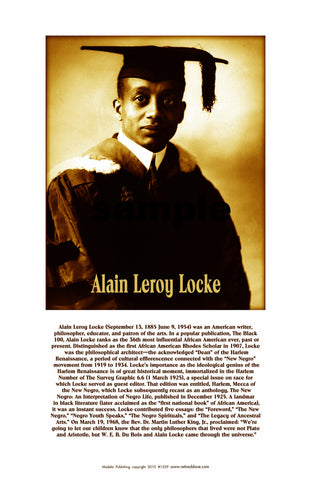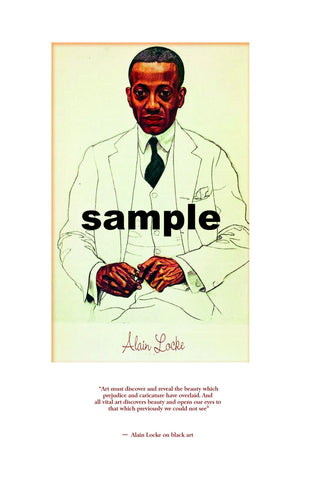Countee Cullen #1410
$ 10.00
Caption from poster__
“ There is no secret to success
except hard work
and getting something indefinable
which we call the
breaks".
In order for a writer to succeed,
I suggest three things
read and write -- and wait.”
Countee Cullen
Countee Cullen 1903 - 1946 Countee Cullen Born in Louisville, Kentucky, and raised by Elizabeth Porter until her death in 1908, this poet of the Harlem Renaissance was raised by the Rev. And Mrs. Frederick Cullen of a New York City Methodist Episcopal Church. When he attended Dewitt Clinton High School, Cullen not only edited the school paper, but won a city wide poem competition for "I Have a Rendezvous with Life." Graduating from New York University in 1925, as Phi Beta Kappa, he was already writing some of the acclaimed poems published in books by Harper and Brothers: Color (1925), Copper Sun (1927). He won first prize in the Witter Bynner Contest in 1925. Graduating with a Harvard University M.A. degree in 1926, the poet traveled to France as a Guggenheim Fellow. Upon his return in 1928, he married Yolanda Du Bois, daughter of W.E.B. Du Bois, in a prominent celebration. She divorced him two years later, From 1934, on, Cullen taught English and French at the Frederick Douglas Junior High School, though he declined a Creative Literature invitation from Fisk University in Nashville. In 1940, he married an old friend, Ida Mae Roberson His favorite poet was John Keats, but his own work also included plays. In 1935, he translated Medea by Euripedes, seven choruses of which were set to music by Virgil Thompson. His one act play, The Third Fourth of July, ran for 113 performances at the Martin Beck Theater on Broadway, introducing Pearl Bailey as Butterfly. His death in 1946, was occasioned by a gastrointestinal disorder. This representative of the Harlem Renaissance has public schools in both Chicago and New York named for him. Baldwin (right of center) with Charlton Heston, Marlon Brando, and Harry Belafonte at the 1963 Civil Rights March on Washington, D.C. Prominent Black actor Sidney Poitier can also be seen in the crowd.Baldwin, like many American authors of the time, left to live in Europe for an extended period of time beginning in 1948. His first destination was Paris where Ernest Hemingway, Gertrude Stein, F. Scott Fitzgerald, Richard Wright, and many others had lived during their writing careers. When Baldwin returned to America, he became actively involved in the Civil Rights Movement. He marched with Martin Luther King, Jr. to Washington, D.C. In 1962 Baldwin received a George Polk Award for his reporting in The New Yorker. During the early 1980s, Baldwin was on the faculty of the Five Colleges in Western Massachusetts. While there, he mentored Mount Holyoke College future playwright Suzan-Lori Parks, who won the Pulitzer Prize for Drama in 2002. Baldwin died of cancer in 1987 at the age of 63. In 2005 the USPS created a First-Class Postage Stamp dedicated to him which featured him on the front, and on the back of the peeling paper had a short biography. One of Baldwin's richest short stories, "Sonny's Blues," appears in many anthologies of short fiction used in introductory college literature classes.
